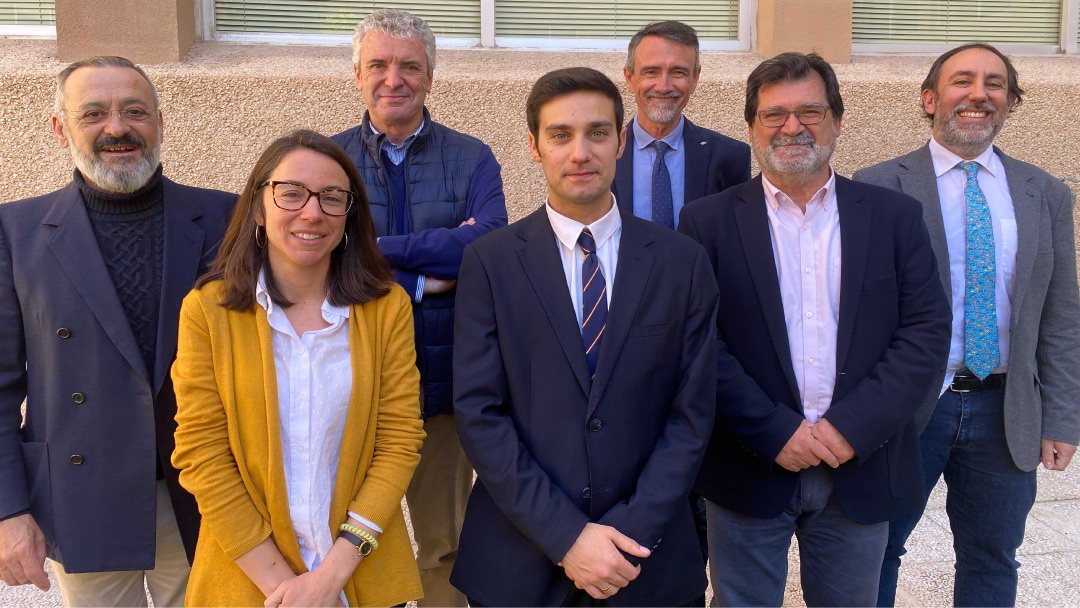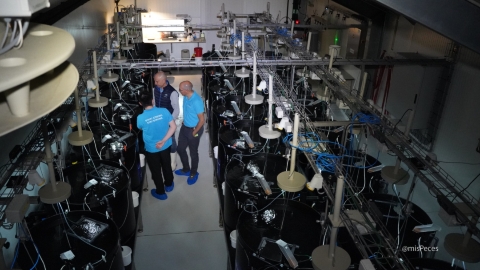
In the latest edition of the Spanish Society of Aquaculture's (SEA) best tesis 2023 awards, the doctoral work carried out by Gonzalo de Alba Costa, a veterinarian currently working at the Animal Experimentation Service of the University of Murcia, has been recognised as the best in the field of aquaculture in this year. His research, entitled "Influence of light and temperature on the reproductive rhythms, thermotolerance and behaviour of zebrafish (Danio rerio) and Nile tilapia (Oreochromis niloticus)", stands out for its significant contributions to the study of fish physiology and its application to improving aquaculture practices.
This recognition by the Spanish Society of Aquaculture underlines the importance of research in meeting future industry challenges and improving aquaculture practices in a sustainable way.
Gonzalo de Alba Costa's research, carried out at the University of Murcia under the supervision of Drs. Francisco Javier Sánchez Vázquez, José Fernando López Olmeda and Evaristo Mañanos Sánchez, investigates how light and temperature affect key processes in two species that are fundamental to aquaculture: the zebrafish and the Nile tilapia. The thesis was defended on 7 March 2023 and was awarded the highest distinction (Cum Laude) and the Special Doctoral Prize of the University of Murcia.
One of the most notable advances of this thesis is the demonstration of how environmental factors, such as light spectrum and daily thermocycles, significantly influence reproduction and development in these species. In Nile tilapia, the introduction of thermocycling during early developmental stages has been shown to promote ovarian differentiation and reduce sensitivity to masculinising treatments. This has a direct impact on optimising the sex ratio in aquaculture stocks, thereby improving productivity.
In addition, the research reveals the existence of coordinated daily rhythms in the brain-pituitary-gonadal axis of tilapia, providing new insights into the reproductive cycles of this species. This information is crucial for adjusting light and temperature conditions in aquaculture facilities to improve both reproductive efficiency and fish welfare.
In the case of zebrafish, the results showed that thermocycling reduces thermal stress and improves larval survival, providing valuable information for increasing the resilience of fish to thermal fluctuations in aquaculture systems. In addition, the combination of thermocycling and short wavelengths, such as blue light, improved larval growth and survival, whereas red light was found to be detrimental to larval development.
Implications for aquaculture in times of climate change
Gonzalo de Alba Costa's findings are essential for developing more sustainable strategies in aquaculture, particularly in the context of climate change. Optimising environmental conditions not only improves performance and production efficiency, but also contributes to more resilient management of aquatic resources, reducing environmental impacts and enhancing the long-term economic viability of aquaculture operations.
The role of researchers in improving aquaculture
Currently, Gonzalo de Alba Costa works as a specialist technician in aquaculture at the Animal Experimentation Service of the University of Murcia in an automated marine aquaculture facility.
These facilities are part of Line 2 "Sustainable, Smart, and Precision Aquaculture" of the Complementary Plan for Marine Sciences THINKINAZUL, funded by the Ministry of Science and Innovation with European Union NextGeneration funds, alongside the Séneca Foundation of the Autonomous Community of the Region of Murcia.


